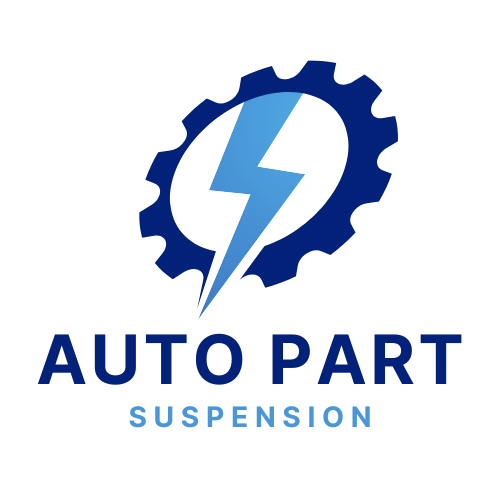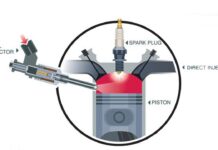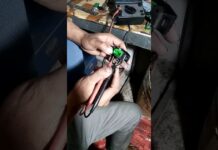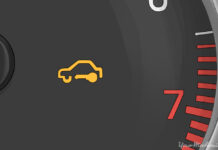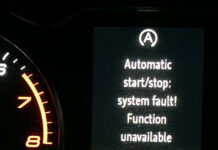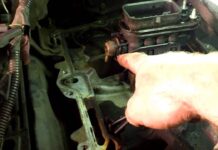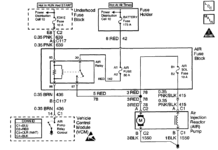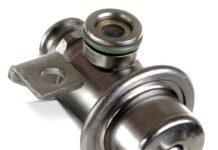What is the P0149 fault code What is the Fuel Timing Problem? How do you fix the P0149 fault code What are the causes and symptoms of the P0149 error code?
What is the P0149 fault code? What does it signify?
If the code P0149 is displayed on your vehicle, this means that the powertrain controller module (PCM), detected some issues with the fuel pump timing. Fault code P0149 will be triggered if the desired and current fuel pressures are not compatible. This code is often found on diesel vehicles.
Direct injection diesel engines use a crankshaft-driven mechanical fuel pump. The pump can be placed under the intake manifold as it is compact enough. This pump also includes components such as the fuel pressure control actuator, high pressure pump and fuel timing solenoid. A fuel pressure sensor is likely to be located near the pump.
The timing of the fuel pump in a diesel fuel system is set to match the crankshaft position. It delivers high pressure injection pulses at a precise point and interval to each cylinder. This allows for high compression ratios to be handled.
The P0149 fault code can affect vehicles of all makes and models, including Ford, Focus and Transit, Volkswagen, Audi and Jeep, Honda, Honda, Hyundai, and Volkswagen.
What causes the P0149 Fault code?
As with any other code, there are many reasons why a P0149 fault code can be set. Below are the most common causes.
- – Defective fuel timing solenoid
- – Missing timing gears
- – Defective fuel pressure sensor
- – Defective fuel pump
- – Defective fuel pressure control actuator
- – Leakage in the fuel system or air
- – A PCM that is not working or needs a software upgrade
What are the symptoms of P0149 Malfunction Code?
You may experience the following symptoms if your vehicle has the code P0149:
- – Illumination at the check engine lights
- – It is possible that you won’t be able start the engine because the PCM will protect the high-pressure fuel pump and itself from any damage.
- – Low engine performance
- – Higher fuel consumption
- – Strong fuel smell
- – Turn the vehicle into failsafe mode
- – Excessive exhaust gases
- – Other fault codes for the fuel system
How to Fix the P0149 Fault Code
This problem can be caused by either an electrical fault or a mechanical timing error. This is the easiest way to find out if there is an electrical fault. It could be misalignment if you have had to make a mechanical repair to the timing chain. You should also address any other fuel system trouble codes that are associated with P0149.
- – Look for fuel leaks and damaged fuel system parts, and make repairs if necessary.
- – The fuel timing solenoid can be found at the bottom of the fuel pump assembly. It connects directly with the control module or the PCM. Diagnose and repair any fault codes related to control modules first.
- – Check the wiring harness connecting the PCM to the fuel timing solenoid. If there is any obvious damage, repair it as soon as possible.
- You can disengage the fuel timing solenoid by using a DMM (digital multometer) to measure resistance between terminals. The resistance should be between 10 Ω and 20 Ω across the coil and above 10 kΩ to ground. Replace the solenoid, if it isn’t as specified. Do not attempt to test the resistor if you are unable to disconnect the fuel timing sensor. The control module could be burned.
- – Test the fuel control actuator and replace it if necessary
- – Test the fuel pressure sensor and replace it if necessary
- Multi-part removal is required to verify the timing between crankshaft and fuel pump. Check that all parts of the engine block, cylinder head, chain and gears are aligned perfectly. Repair as necessary.
- – Replacing a faulty fuel pump
How serious is the P0149 fault code?
Engine component damage can be caused by inconsistencies in the timing of fuel pumps. The potential danger to your engine is why it is so important that you take code P0149 seriously and have it repaired as soon possible.
